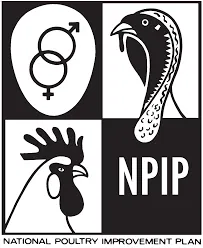Elliot's Pheasant _$150/pair
Eggs/live birds are ship USPS or locally pickup or arrange for ground delivery. Live birds Shipping fee is charged at a discounted rate -$100 for up to 4 birds Fertile eggs shipping fee -$15 We ship only in USPS approved shipping containers. We ship through USPS priority express mail. 1-2days estimated arrival time. Live guarantee on all shipment. We ship birds out weekly Mondays- Wednesdays. No shipping on public holidays. Tracking # will be email after the birds have been sent. Usually from 5-6pm the day of shipment
Palmfarmsteads
A large pheasant, Elliot's have a curious nature and can become quite tame in the aviary after a period of acclimation. A large aviary is needed with plenty of room for the females to move away from the males who can sometimes get aggressive during the breeding season. In a mixed species exhibit, I wouldn't recommend other galliformes or ground birds kept with this species. We housed them with doves, finches, and hookbills with no issues.
Breeding takes place in the spring, sometimes as early as mid-March in some locations. The females, like most pheasants, makes a simple scrape nest under some type of cover. Our birds would nest under conifers planted in their aviaries. Clutch size is 6 to 8 rosy white eggs incubated by the female for about 25 days.
The captive diet of adult Elliot’s Pheasant consists of a game bird crumble or pellet - we used Purina® Game Bird Maintenance at 12.5% protein during the fall and winter months and increased the protein level to 18% in late winter to early Fall. The chow was mixed with various grains and seeds year round. Whole fruits such as apples, pears, blueberries, blackberries, grapes, and peaches are offered every other day; leafy vegetables such as romaine, leaf, endive, kale, clover, dandelion are offered daily (some only in season); other veggies are chopped or giving whole such as soft corn, peas, broccoli, carrots, zucchini, sweet potato on days when fruit isn't offered. Live food such as mealworms, waxworms, dubia roaches, and crickets are given once a week during the spring and these are dusted with reptile calcium powder. Poultry grit should be available at all times. For the chicks, a high protein crumble is offered, starting at 30% and gradually decreasing with age.
Our Elliot's seemed to enjoy scratching and digging in substrate. I would often add various piles of leaves, mulch (untreated or dyed), and rocks to to the aviary for their enrichment often tossing a handful of mealworms or waxworms in the pile. Pine cones packed with peanut butter and seed was a fun treat as well millet sprays hung in various locations.
Contact: (402)446-1788
Email: palmfarmsteads@gmail.com
www.palmfarmsteads.com
40510 J Rd Mancos, Colorado(CO), 81328
